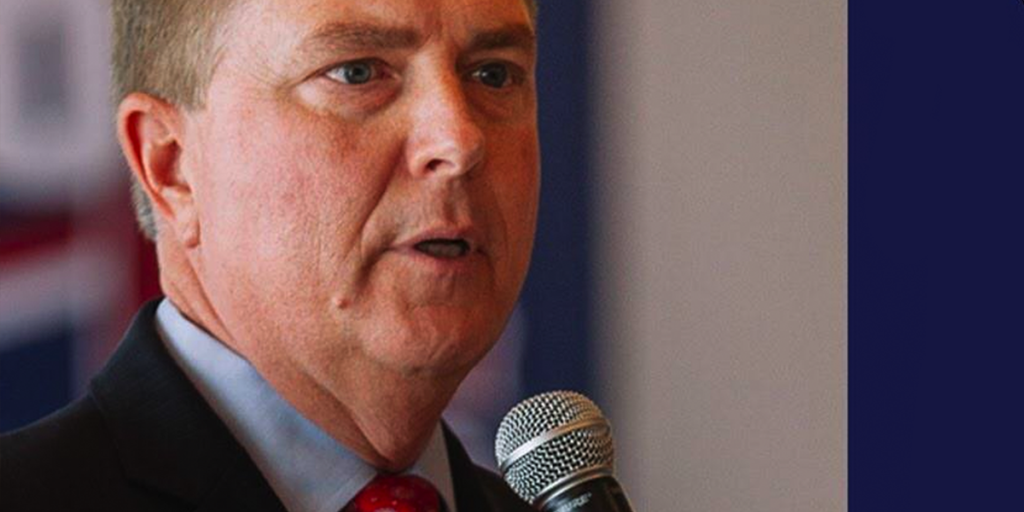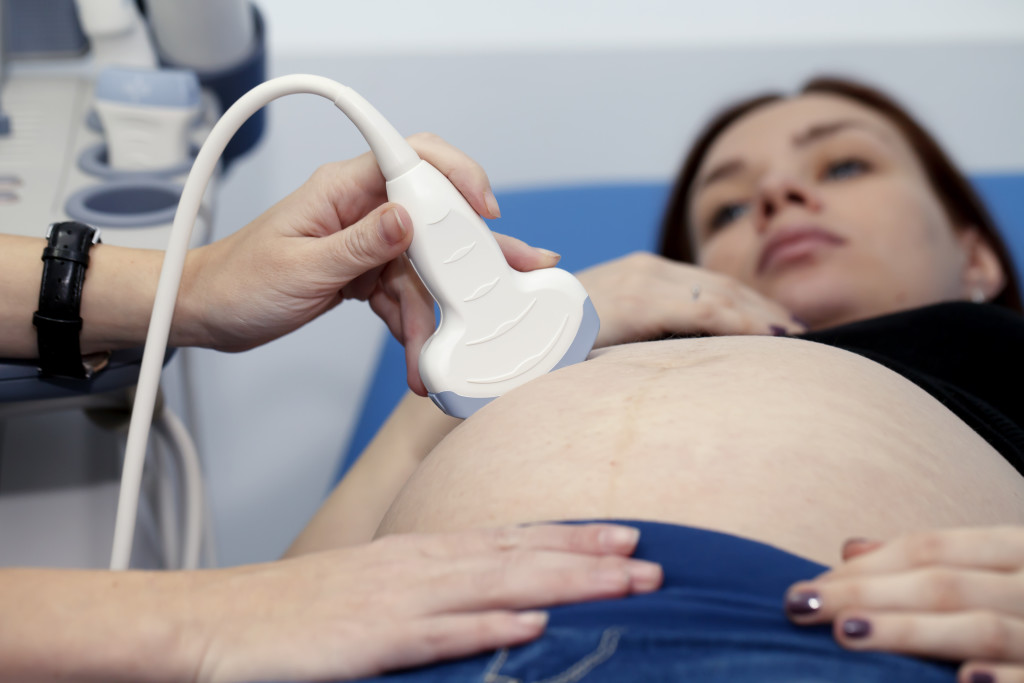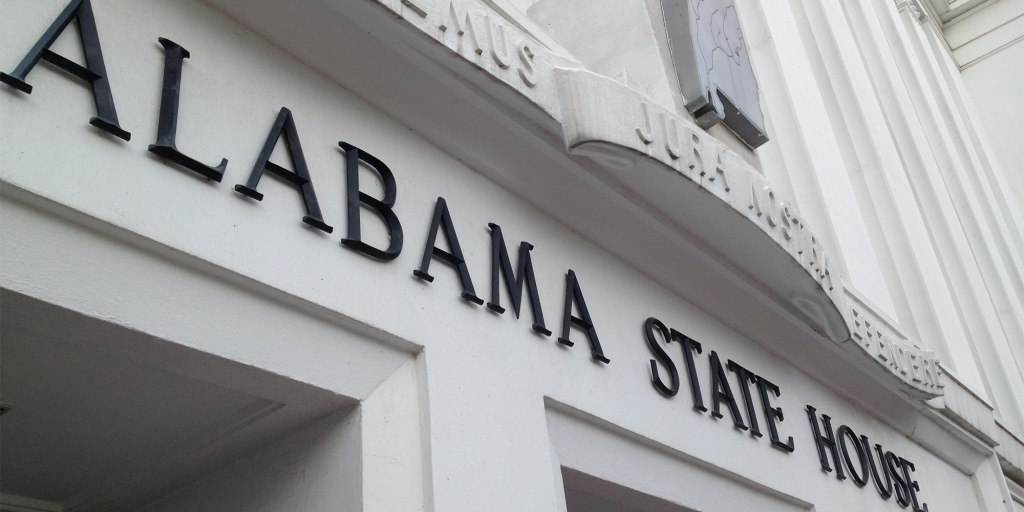Federal appeals court blocks Alabama anti-abortion law

The 11th Circuit U.S. Court of Appeals in Atlanta blocked Alabama anti-abortion legislation on Wednesday, that would have outlawed a commonly used second-trimester dismemberment abortion procedure. The legislation, SB363: the Unborn Child Protection from Dismemberment Abortion Act, originally passed in 2016 and called for a ban on dilation and evacuation abortions; during which the fetus is removed in pieces with forceps. This type of procedure accounts for approximately 95 percent of all abortions in the second trimester. The legislation also allowed an exception in the event of a “serious health risk to the mother.” Executive director of the American Civil Liberties Union of Alabama, Randall Marshall told the Associated Press that the ruling means “Alabama politicians can’t put an “ideological agenda” over a woman’s health and decision-making.” “I am disappointed that the 11th Circuit sided with the lower court in this case, but it is encouraging that the court recognized the State’s important and legitimate interests in ending barbaric abortion procedures—in this case, procedures that literally tear apart babies living inside their mothers’ wombs,” Attorney General Steve Marshall said in a statement. “Our legal team is carefully considering whether we will petition the Supreme Court for review of this case. We expect to reach a decision soon.” In June of 2016 the ACLU filed a lawsuit against the restrictions, saying they would dramatically cut abortion access and close the state’s two busiest clinics — the West Alabama Women’s Clinic in Tuscaloosa and the Alabama Women’s Center in Huntsville. According to the Alabama Department of Public Health, the clinics in Huntsville and Tuscaloosa performed 72 percent of the 8,080 abortions in Alabama in 2014. Scheduled to take effect on Aug. 1 of 2016, U.S. District Judge Myron Thompson temporarily blocked the enforcement of the new law in July of that year.
Scott Dawson calls for investigation of all Alabama abortion clinics

Gubernatorial candidate Scott Dawson called for the investigation of all Alabama abortion clinic’s on Friday; after it was reported that a Montgomery abortion clinic failed to report potential sexual abuse 13 year-old patient. According to AL.com, the girl first visited the clinic in January 2016 and gave the clinic a birth date in July 2000, which would have made her 15. Two weeks later when she returned to have the abortion she brought her birth certificate showing that she was born in July 2002, meaning she was actually 13 at the time the abortion was performed. The girl had a second abortion in April of 2017, when she was 14 years old. In January of this year, the Alabama Department of Public Health (ADPH) sent an inspector to interview the director of the clinic who verified the information and only reported the patient and both abortions to ADPH after the inspection. The clinic has since provided the ADPH with a complete correction plan to revise how it obtains and reviews information from minors. “The news coming out of Montgomery breaks my heart and the apathy exhibited by our Montgomery politicians is angering,” declared Dawson. “When a 13-year-old child—with non-English speaking parents—is given an abortion, without a third-party counselor and no suspicion of sexual abuse and no report, we know Montgomery needs new leadership. Where is law enforcement? If this were a public school employee who had failed to report potential sexual abuse, they would be without a job and under investigation.” Dawson said as Governor he will immediately call for a full investigation of all abortion clinics across the state. “As Governor, I will immediately call for full investigation of all abortion clinics in the State of Alabama and at minimum, I will see to it that the Department of Public Health is held accountable to enforce their own rules, and that entities operating like this will be closed,” explained Dawson. “In Alabama, we treasure all human life—the born, the unborn, and certainly 13-year-old children who may need to be rescued from an abusive situation. Just because a clinic can legally murder, doesn’t mean they get a pass on the laws of this state.” Dawson faces Incumbent governor Kay Ivey, Huntsville mayor Tommy Battle, and State Sen. Bill Hightower in the June 5 Republican primary.
Complaint challenges Alabama ban on abortion clinics near schools

The American Civil Liberties Union is challenging two new Alabama abortion restrictions, one banning clinics near schools and another banning a common second-trimester abortion procedure. The complaint filed Thursday said the location restriction would force two of the state’s five abortion clinics to close. Alabama lawmakers voted earlier this spring to ban abortion clinics within 2,000 feet of a public K-8 schools. They also banned a commonly used second-trimester abortion procedure known as dilation & evacuation. ACLU attorney Andrew Beck said the laws are unconstitutional restrictions designed to prevent women from accessing abortions. The filing in Montgomery federal court seeks to amend an existing lawsuit over a requirement that clinic backup doctors have hospital admitting privileges. A spokeswoman for Alabama Gov. Robert Bentley said the governor did not have an immediate response. Republished with permission of The Associated Press.
Alabama Legislature passes bill to close abortion clinics near schools on final day of session

The Alabama Legislature was on a mission Wednesday, it’s last day of regular session, to tick off another to-do item the “Right for Alabama” agenda GOP leadership laid out in February. With time ticking away, the Alabama House took up a controversial bill, HB 301 sponsored by Rep. Ed Henry, a Decatur Republican, which prohibits abortion clinics from being within 2,000 feet from any K-8 public school. The bill does this by directing the Alabama Department of Public Health not to reissue licenses for any clinic within 2,000 feet of a school. Despite strong Democratic opposition and an attempt to filibuster, the bill overwhelmingly passed the state House in 73-18 vote. The bill now awaits Gov. Robert Bentley‘s signature. If signed into law, the bill would force two abortion clinics in the state to close, including one in Huntsville stationed across the street from Edward H. White Middle School, which was forced to move to its current location near a public school after the state mandated new facility requirements in 2013. “It disturbs me that a person has tried to abide by the law, and still gets penalized,” Hunstville-Democratic Rep. Laura Hall said, according to the Associated Press. “It is unfair for an individual to meet the demands of a law that we passed and when they moved, we create another law to put them basically out of business.” The state Senate had passed its version of the bill in March by a vote of 27-6. “If we currently protect a physical buffer between students and liquor stores, it is common sense that we would protect them from attending school near an abortion clinic,” Sen. Paul Sanford of Huntsville said upon the Senate’s passage of the bill. “This will not mandate any abortion clinic to shut down, but I have no problem if it forces a clinic or two to move away from our kids.”
Senate passes bill banning abortion clinics located near schools

On Tuesday, the Alabama Senate passed a bill that would prohibit abortion clinics from being within 2,000 feet of a school, which will directly impact a clinic in Huntsville stationed across the street from Edward H. White Middle School. The Alabama Women’s Center for Reproductive Alternatives moved to its current location in 2014 when it was forced to vacate its old location to comply with the Women’s Health and Safety Act, HB57, which required that clinics meet “all ambulatory health care occupancy standards.” The new facility is near Huntsville Hospital’s emergency room, which puts it in compliance with the law’s requirements. SB205 from Sen. Paul Sanford (R-Huntsville) directs the Alabama Department of Public Health not to reissue licenses for any clinic within 2,000 feet of a school, effectively closing down the Huntsville clinic in its new location. “If we currently protect a physical buffer between students and liquor stores, it is common sense that we would protect them from attending school near an abortion clinic,” Sanford said in a statement release Tuesday. “This will not mandate any abortion clinic to shut down, but I have no problem if it forces a clinic or two to move away from our kids.” With passage of the bill, Alabama will become one of the first states in the nation to have a school proximity provision for abortion clinics. “Abortion clinics can attract unrest and protest – from people on both sides of the issue – and therefore can pose a public safety risk to young students,” Sanford added in the release. “Having an abortion clinic so close to an elementary school that children are required to walk on the sidewalk past the clinic is not in their best interest.” An floor amendment changed the bill to where a clinic could stay open if a school is built near an already-operating facility.
Alabama legislative preview: March 21 – March 25, 2016

The Alabama House of Representatives will convene at 1 p.m. Tuesday, and the Senate an hour later, as state lawmakers gather for the 17th day of the regular session. This week, the Senate will take up SB89 from Sen. Arthur Orr (R-Decatur), which would require Alabama public school students to pass a civics test as a requirement for graduation. Orr’s legislation has been on the agenda for a while, but has likely been stalled due to a focus on more contentious issues. The body is also slated to take up SB148 from Sen. Jim McClendon (R-Springville), which would require all vehicle passengers to wear a safety belt, and SB114 from Sen. Paul Sanford (R-Huntsville), which would regulate fantasy contests and “exempt fantasy contests from certain criminal penalties associated with gambling activity.” The bill would increase spending by the Attorney General’s office, which would be responsible for overseeing such activities, by $1 million in the first year. Also on the Senate’s agenda this week are SB14 from Sen. Gerald Allen (R-Tuscaloosa), which would allow citizens to carry a firearm in their vehicle without a permit, and SB205 from Sanford, which would bar the Alabama Department of Human Resources from renewing health center licenses for an “abortion clinic or reproductive health center” within 2,000 feet of a school. In the House, lawmakers will take up HB46 from Rep. Alan Boothe (R-Troy), which would allow Alabama spirit makers to sell fifths for off-premise consumption. The body is also slated to debate HB13 from Rep. Alan Harper (R-Northport), which would allow citizens to vote on whether or not to allow a lottery in the state – the legislation provides no details on how proceeds from such an operation would be used, which is likely why it hasn’t been discussed thus far. HB218 from Rep. Dickie Drake (R-Leeds) is also on the agenda and would require that all elementary school students be instructed in cursive writing before the end of their third grade year. HB244 from Rep. Connie Rowe (R-Jasper) will also be taken up this week – the bill prohibits law enforcement from requiring victims of a sexual offense to take a polygraph examination. Committee hearings get underway Tuesday, though the vast majority take place on Wednesday, beginning with the Senate Judiciary Committee, which will take up SB237 from Sen. Quinton Ross (D-Montgomery). Ross’s legislation would make it unlawful for employers to request information regarding arrests and convictions on employment applications. The committee will also take up Sanford’s SB115, the Senate version of “Leni’s Law” from Rep. Mike Ball (R-Madison), which would decriminalize possession of the marijuana-based medicine cannibidiol. The Senate Committee on Constitution, Ethics and Elections will debate SB360 from Sen. Tom Whatley (R-Auburn), which would require voters to register as a Democrat or Republican before voting in a primary. Voters who do not will not be allowed to vote on party candidates, only on ballot measures and nonpartisan issues. The House Committee on Agriculture and Forestry will take up HB393 from Rep. Ken Johnson (R-Moulton), which would allow for the growing of industrial hemp in the state for use in a variety of products. The House Committee on Mobile County Legislation will mull over HB248 from Rep. Napoleon Bracy (D-Mobile), which would establish a $10.10 minimum wage in Mobile County. At the close of business this week, legislators will adjourn for spring break.
Protecting innocence: Rep. Ed Henry files bill barring abortion clinics near schools
Abortion is a divisive issue. In my experience it would be hard to find someone with an opinion on the topic not have a strong opinion. State Rep. Ed Henry filed HB 527 on Tuesday. Speaking to The Associated Press, Henry said, “Around the abortion clinic, there are always protests. There’s back-and-forth and graphic things said from both sides.” Henry is right. A cursory search of local media from Huntsville area shows that there are frequent and sometimes large protests around the city’s only abortion clinic. In June 2014 protestors began gathering outside Alabama Women’s Wellness Center protesting its application to perform abortions. In their initial protests those in the pro-life community noted that the proximity of the location to the Ed White Middle School was a concern. Last month, AL.com reported more than 100 protestors gathered at the location as part of an annual event during Lent. How can pro-choice advocates possibly think that the innocence of the children in nearby schools should not be protected from the reality of abortions? Even if you don’t believe abortions themselves are wrong, how can you believe that children should be subjected to such highly emotional protests. Advocates on both sides often get spirited when faced with opposition and it’s not fair for children to be caught in the middle. No matter your views on the topic can’t we just agree that children and young teens should not have to be subject to either the act of abortion or the protests/rallies in support of them?


